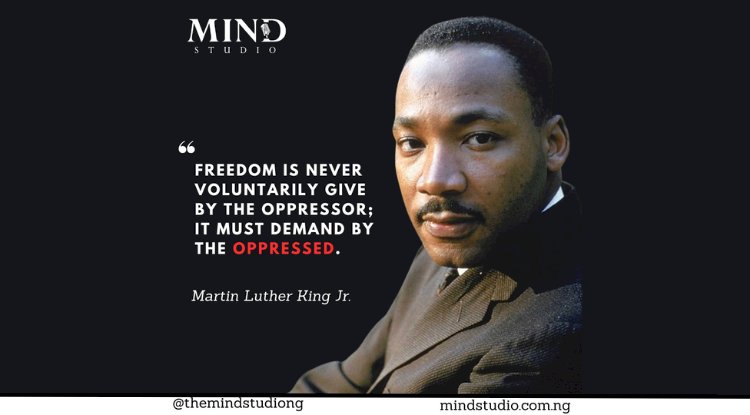Quote Of The Week

The struggle for freedom and independence has been a driving force throughout human history. It is a fight that has taken different forms in different times and places, but it is always fuelled by the same desire for self-determination and the right to shape one's own destiny.
Today, as we face new challenges and threats to our freedom, the need for a renewed commitment to liberation has never been greater. Whether it is the struggle for democracy in authoritarian regimes, the fight against oppression and discrimination, or the battle for economic justice, the stakes are high, and the need for action is urgent.
The first step in any struggle for liberation is to recognize the need for change. This requires a clear understanding of the sources of oppression and the ways in which they limit our freedom and potential. Whether it is a repressive government, a corrupt economic system, or social prejudices and biases, it is important to identify the root causes of the problem and develop a strategy for change.
The second step is to build a movement for change. This requires organizing and mobilizing people around a common vision and shared goals. It involves reaching out to allies and potential supporters, building networks and coalitions, and creating a sense of solidarity and collective action.
The third step is to take action. This means engaging in a range of activities, from peaceful protest and civil disobedience to political organizing and advocacy. It also means supporting those who are most affected by oppression and working to address their needs and concerns.
Liberation is not a one-time event or a single victory, but an ongoing process of struggle and transformation. It requires a long-term commitment and a willingness to face challenges and setbacks along the way.













